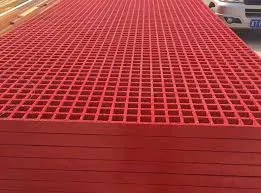
-
 Afrikaans
Afrikaans -
 Albanian
Albanian -
 Amharic
Amharic -
 Arabic
Arabic -
 Armenian
Armenian -
 Azerbaijani
Azerbaijani -
 Basque
Basque -
 Belarusian
Belarusian -
 Bengali
Bengali -
 Bosnian
Bosnian -
 Bulgarian
Bulgarian -
 Catalan
Catalan -
 Cebuano
Cebuano -
 China
China -
 China (Taiwan)
China (Taiwan) -
 Corsican
Corsican -
 Croatian
Croatian -
 Czech
Czech -
 Danish
Danish -
 Dutch
Dutch -
 English
English -
 Esperanto
Esperanto -
 Estonian
Estonian -
 Finnish
Finnish -
 French
French -
 Frisian
Frisian -
 Galician
Galician -
 Georgian
Georgian -
 German
German -
 Greek
Greek -
 Gujarati
Gujarati -
 Haitian Creole
Haitian Creole -
 hausa
hausa -
 hawaiian
hawaiian -
 Hebrew
Hebrew -
 Hindi
Hindi -
 Miao
Miao -
 Hungarian
Hungarian -
 Icelandic
Icelandic -
 igbo
igbo -
 Indonesian
Indonesian -
 irish
irish -
 Italian
Italian -
 Japanese
Japanese -
 Javanese
Javanese -
 Kannada
Kannada -
 kazakh
kazakh -
 Khmer
Khmer -
 Rwandese
Rwandese -
 Korean
Korean -
 Kurdish
Kurdish -
 Kyrgyz
Kyrgyz -
 Lao
Lao -
 Latin
Latin -
 Latvian
Latvian -
 Lithuanian
Lithuanian -
 Luxembourgish
Luxembourgish -
 Macedonian
Macedonian -
 Malgashi
Malgashi -
 Malay
Malay -
 Malayalam
Malayalam -
 Maltese
Maltese -
 Maori
Maori -
 Marathi
Marathi -
 Mongolian
Mongolian -
 Myanmar
Myanmar -
 Nepali
Nepali -
 Norwegian
Norwegian -
 Norwegian
Norwegian -
 Occitan
Occitan -
 Pashto
Pashto -
 Persian
Persian -
 Polish
Polish -
 Portuguese
Portuguese -
 Punjabi
Punjabi -
 Romanian
Romanian -
 Russian
Russian -
 Samoan
Samoan -
 Scottish Gaelic
Scottish Gaelic -
 Serbian
Serbian -
 Sesotho
Sesotho -
 Shona
Shona -
 Sindhi
Sindhi -
 Sinhala
Sinhala -
 Slovak
Slovak -
 Slovenian
Slovenian -
 Somali
Somali -
 Spanish
Spanish -
 Sundanese
Sundanese -
 Swahili
Swahili -
 Swedish
Swedish -
 Tagalog
Tagalog -
 Tajik
Tajik -
 Tamil
Tamil -
 Tatar
Tatar -
 Telugu
Telugu -
 Thai
Thai -
 Turkish
Turkish -
 Turkmen
Turkmen -
 Ukrainian
Ukrainian -
 Urdu
Urdu -
 Uighur
Uighur -
 Uzbek
Uzbek -
 Vietnamese
Vietnamese -
 Welsh
Welsh -
 Bantu
Bantu -
 Yiddish
Yiddish -
 Yoruba
Yoruba -
 Zulu
Zulu
frp vessel
FRP Vessels A Modern Solution for Industrial Needs
Fiber Reinforced Plastic (FRP) vessels have emerged as a revolutionary solution for various industrial applications, thanks to their unique properties and advantages. Composed of a polymer matrix reinforced with fibers such as glass, carbon, or aramid, FRP vessels are renowned for their lightweight nature, corrosion resistance, and high strength-to-weight ratio. These characteristics make them an ideal choice in industries ranging from chemical processing to water treatment and beyond.
FRP Vessels A Modern Solution for Industrial Needs
Moreover, the lightweight nature of FRP vessels contributes to ease of installation and transportation. Unlike their metal counterparts, FRP vessels can be handled and moved with less manpower and equipment, which translates to lower labor costs and faster project completion timelines. This advantage is particularly crucial in large-scale operations or remote locations where logistical challenges can arise.
frp vessel

In addition to practical applications, the versatility of FRP materials allows for customized designs tailored to specific industry requirements. They can be manufactured in various shapes, sizes, and configurations, enabling industries to deploy tailored solutions for unique challenges. Whether it's in constructing storage tanks for chemicals or pressure vessels for gas processing, the adaptability of FRP proves invaluable.
Environmental considerations further enhance the appeal of FRP vessels. With a growing emphasis on sustainability, FRP is increasingly recognized as an eco-friendly alternative. Its longevity reduces waste associated with frequent replacements, and the production of FRP materials often involves less energy compared to that of traditional metals.
Safety is another critical factor in industrial operations, and FRP vessels excel in this regard. Their non-conductive and non-magnetic properties make them safer in specific applications, particularly where static electricity poses risks. Additionally, the materials used in FRP can be designed to withstand high pressures and temperatures, ensuring that safety standards are met.
In conclusion, FRP vessels present a modern, efficient, and sustainable solution for various industrial needs. Their corrosion resistance, lightweight nature, design versatility, and safety features make them an attractive option for organizations looking to optimize their operations while reducing costs and environmental impact. As industries continue to evolve, the role of FRP vessels is set to expand, paving the way for innovative applications in the future.









